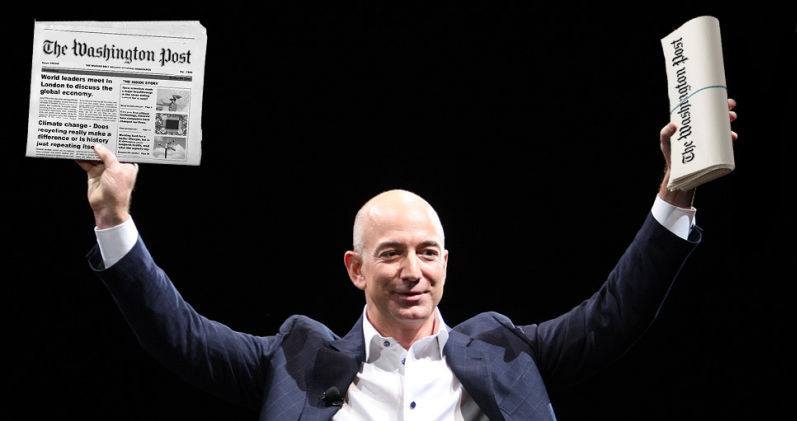Wednesday, Feb. 26, 2025, Jeff Bezos announced a shocking new policy regarding the opinions section of The Washington Post, demanding a shift in focus toward themes of ‘personal liberties and free markets’ as well as effectively eliminating the publication of opposing viewpoints. I think this shift acts as a warning of the future restrictions to come, prompting the need for both accurate journalism and an increase in critical thinking when addressing news sources and biases. Opinions editor David Shipley and opinions columnist Ruth Marcus, along with several other protesting staff members, expressed their distaste for this policy with their immediate departures from the paper. Additionally, in just two days following this announcement, over 75,000 digital subscribers canceled their news memberships, representing the controversy tied to political extremes in the media.
Polarization has become more and more of a problem in American society over the past several decades and is further fueled when reliable news sources become influenced or tied to a certain political ideology. Although Bezos has not given a specific reason for the Post’s change and declined its involvement with any party, the rightward shift clearly reflects an unsettling nationwide trend of media censorship. Between the TikTok ban, recent book bans, and defunding of groups such as Voice of America, an international broadcasting network that provides unbiased news coverage in over 40 languages, the world we live in today draws more parallels to Ray Bradbury’s Fahrenheit 451 than I’m comfortable with. This sparks debate over the true definition of good journalism under the threat of government censorship or influence, which I claim is to provide accurate news and the freedom to question, examine or challenge anything and everything relevant to current society. Decades of dystopian novels and movies should have taught us better than to blindly trust in authoritarian policies without careful analysis.
Among a dumpster fire of misinformation and biased news, I believe that journalism is more important than ever, overpowering any possible justifications of policies that encroach on the constitutional right to free speech. Sure, it can be argued that the policy’s impact has been overinflated in order to villainize Bezos or needlessly alert the public eye to the dangers of billionaire news company ownership, but this action is merely a demonstration of how authorities can control the flow of information and news to the general public, often with both the power and will to silence opposing voices. What starts as a limitation of the opinions section may bleed into other sections of the Post or other news broadcasts.
“I am of America and for America, and proud to be so,” Bezos said. “Our country did not get here by being typical. And a big part of America’s success has been freedom in the economic realm and everywhere else. Freedom is ethical — it minimizes coercion, and practical — it drives creativity, invention, and prosperity.” However, someone whose grand vision for the newspaper includes narrowing viewpoints and limiting topics of discussion perhaps isn’t the best voice to speak about creative success.
The new policy has also been discussed by President Donald Trump in an interview with journalist Sharyl Attkisson, in which he published his praise for Bezos. “A guy like Bezos, I’ve gotten to know him, and I think he’s trying to do a real job,” Trump said. “Jeff Bezos is trying to do a real job with the Washington Post, and that wasn’t happening before.” Although Bezos has not explicitly stated his recent allegiance to Trump, he has congratulated his “extraordinary political comeback” in November, traveled to his Florida resort in December, cut the Post’s endorsement of Kamala Harris two weeks before the election and donated $1 million to Trump’s inauguration fund through Amazon, where he works as executive chairman. This staggering display of evidence suggests an alliance between the two figures, one that may threaten the future of unbiased news broadcasting. Therefore, I believe that the Washington Post’s new policy reflects the dangers of media censorship and restricting journalistic rights, contradicting the purpose of a published newspaper to inform and encourage the challenging of public opinion.









